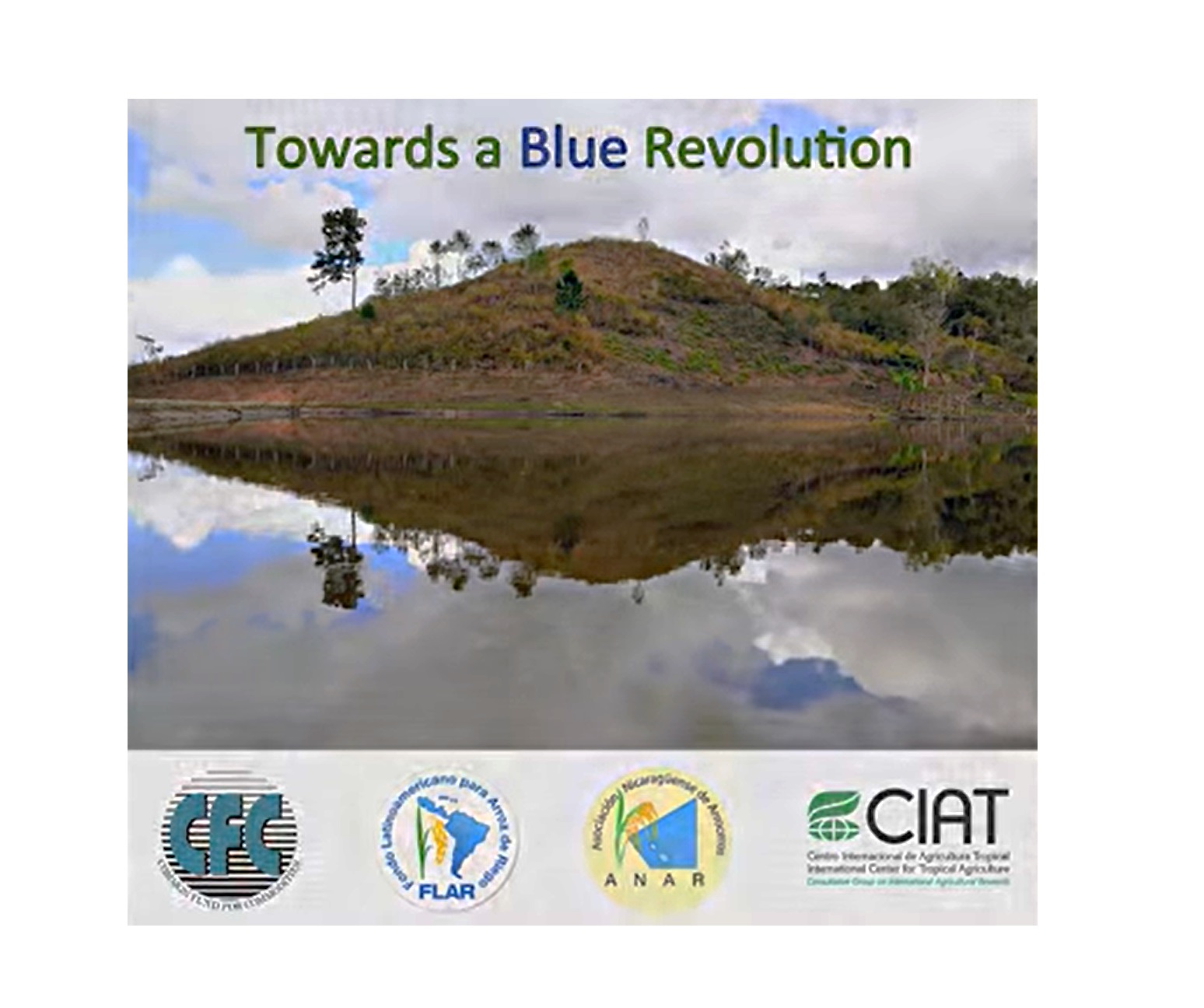Harvesting rainwater for irrigation catching on in Nicaragua
In Nicaragua, the CFC project, with participating member countries, Costa Rica and Mexico, has recently undertaken a massive media campaign to raise public awareness and to promote the project's promising outcomes in water harvesting techniques, which are having a tremendous impact on local farmers involved in its activities.
The challenges brought about by climate change have been testing farmers severely for the past few years, even in parts or regions, that in essence have predictable weather patterns.
For countries like Nicaragua and others in Central America, climate patterns and other weather predicaments are predictable enough -- the seasons are either extremely rainy or totally dry. This means bimodal weather conditions, such as is characteristic in Nicaragua, can have a devastating effect on agriculture, livestock range management, food production and income potential for local farmers.
In 2009, the Common Fund financed an innovative project to test out potential solutions for enhancing irrigated agriculture and specifically rice production through water harvesting. The project--Transforming of Upland to Irrigated Rice through Use of Water Harvesting in Costa Rica, Mexico and Nicaragua (CFC/FIGR/15), has recently undertaken a massive public media campaign to raise awareness and to promote the project's promising outcomes, many of which are having a tremendous impact on farmers involved in its activities in the participating countries. BBC Mundo - BBC World - FLAR CIAT
One farmer, Victor Beltran, told the BBC in a recent profile feature, that after nearly 40 years, he could not imagine such a transformation in effective agricultural practices using harvested rainwater in his local area in Northern Nicaragua, which is one of the driest parts of the country.
The CFC project aims to develop pilot water harvesting facilities to demonstrate the sustainable enhancement of both income and food production from a diversified rice-based production system under small-scale irrigation. Using simple techniques and local applied technology, farmers construct earth dams in appropriate secondary basins on their own land to collect rain water for use in irrigation. Project activities involve dissemination training in simple irrigation engineering techniques, as well as efficient practices for water resources management, which can be feasibly transferred and sustainably adopted by local technicians and farmers.
Farmers are trained in site selection for water catchments, construction of water harvesting facilities, improved crop management and irrigation practices. Fish cultivation, mainly tilapia hatched in the water catchments has also been introduced through the demonstration and dissemination of aquaculture production technology to promote income diversification and better nutritional diets.
Another positive aspect of the project's success has been the introduction of good crop management practices, which successfully supplemented irrigated agriculture practices, resulting in high productivity during the dry seasons. The project also advocates the use of quality seeds of high yielding genetic material, including hybrid maize, use of adequate inputs, including fertilizer to ensure high productivity and continuous monitoring of crops to reduce losses from pest and diseases.
According to local project experts, this is a huge departure from the traditional farming practices in Nicaragua. Farmers there normally plant seeds of questionable quality from local varieties, seldom use fertilizer and have poor weed, pest and disease management, all which can be risky in terms of economic losses.
There is substantial evidence as documented by the BBC to indicate that project activities have proven their potential for high impact in agricultural development, particularly in assisting farmers to increase crop yields, food production and diversification. The pilot water harvesting facilities have provided a veritable blueprint for regional governments for the further expansion of irrigated agriculture for the benefit of small upland rice growers in the region.
The CFC project's latest push for increased public awareness campaign is a timely strategy to galvanise more resources to support irrigated agriculture initiatives, through public media programmes highlighting project achievements and long-term sustainability. The project's local partners hope to secure additional finance to out scale and mass reproduce the construction of reservoirs in the region.
According to project coordinators in Nicaragua, the Ministry of Agriculture is hoping to collaborate with project partners to develop a proposal for expanding the pilot project into a semi-commercial phase, which could involve building partnership links with the appropriate government agencies, local authorities, the Nicaraguan Rice Farmers Association, and eventually, regional development finance institutions and international donors.

